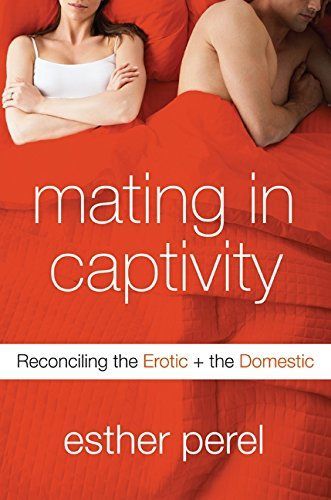
Mating in Captivity Reconciling the Erotic and the Domestic
A guide for loving couples who are looking to renew sexual passion in their lives explains how societal taboos and ideals about domestic equality have compromised the healthy expression of eroticism in today's relationships, in a resource that explains how to overcome personal constraints for greater intimacy. 40,000 first printing.
Reviews
Emily Burns@emilymelissabee
Bouke van der Bijl@bouk
Omar@omareduardo
Amelia Pokorny@amelia_poko
Kat A@mellamokat
Madison Aumua@littlemadgypsy
Luke Kanies@lak
Katie Cheng@katiec
Dani C@danisweetea
Eva Cace@evaluna
Maddie@maddie
Raissa Bonin@rabonin
Anna Loverus@annaloverus
Gabe Cortez@gabegortez
kay@lilavocado
N Y@stereorose
Kaelan Chambers@kchambers
Ian Macartney@ianmacartney
elizabeth@ekmclaren
Pierre@pst
daniela@ooorangemoon
Emma Bose@emmashanti
Omnia AlYousef @omnia99
Soumya@soumyak16
Highlights
Omar@omareduardo
Page 162
Omar@omareduardo
Page 116
Omar@omareduardo
Page 63
Omar@omareduardo
Page 37
Omar@omareduardo
Page 29